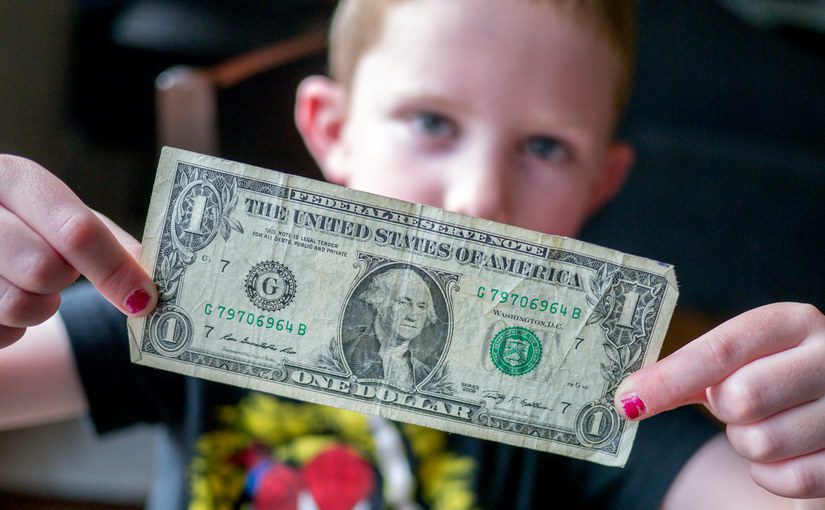In part one of this topic, I discussed why you should have the first of many “money talks” with your kid, busted some of the myths on why parents avoid it, and covered some of the risks if you avoided it. So when should you start talking to your kids about money? My advice is don’t wait too long.
When to start the conversation
Start explaining what money is at age two. Let them touch money (coins and cash), play games with money…then wash their hands because money is pretty filthy (physically, not conceptually).
Start giving your kids weekly money at age three, but don’t put it in a piggy bank and tell them they can never spend it. The piggy bank approach turns money into an abstract concept rather than a real-world tool. They won’t entirely understand this whole “money” thing at first, but it will give you the tangible opportunity to have regular conversations about saving, spending, and giving. It’s also a great way to encourage counting, addition and subtraction skills.
The issue of whether money should be given only for chores – a commission for work as Dave Ramsey would say – or simply as a financial learning tool isn’t clear cut in my view. We chose to implement it in multiple steps based on our son’s age.
Continue reading Having The Money Talk With Your Kids: Part 2
